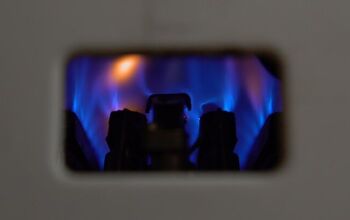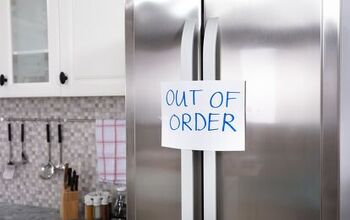Should I Turn Off An Electric Water Heater If The Water Is Off?

Water heaters have changed quite a bit throughout the years, with sleeker, more efficient models replacing the giant tanks of the past. More and more electric water heaters are in homes across the country. Many people wonder if they should turn off an electric water heater if the water is off.
Turn your electric water heater off only when the water is going to be shut off for an extended period. In most cases, it’s better to leave your water heater on and simply turn down the temperature if you want to save money. But, if the water is off for a long time, shutting off the water heater may be necessary to avoid damage. Drain the tank if you plan to turn it off, and make sure to shut it down properly.
For the most part, you won’t even have to concern yourself with turning off the electric water heater in your home. It is meant to kick on and off whenever needed, requiring little intervention from the owner at any time. There are a few times when you would want to turn the water heater off.
Why Should You Turn Off An Electric Water Heater If The Water Is Off?
There are a few different circumstances where turning off the main water supply may come into play. When that happens, you may be left wondering if you need to turn your hot water heater off or if it is fine to remain on.
Most of the time, you can leave it alone. But when it comes to the water being off, there are two situations in particular where you would want to cut the power to the unit.
If the tank is empty or at least close to being empty and you don’t plan to refill it for a long time, turn off the water heater. Running without water can potentially damage the unit and may result in a buildup of pressure within the tank.
The other reason, related to the pressure, is when the main water supply loses its pressure. Again, you want to keep the tank from having either too much pressure or heat buildup inside of the tank. That leads to not only potential damage to the tank but a potential explosion issue.
Is There A Leak?
The most prominent time you typically shut off your water heater is when there is a leak. Having a leak present in your home can throw a real kink in the works. As soon as you notice a leak, it’s common practice to shut off your water until the issue is resolved.
When you have a leak in your hot water heater, that makes things just a bit more complicated. Leaks can appear within your hot water heater for a variety of reasons. It may be age, a valve malfunction, or another degraded part.
Whenever you see a leak coming from your water heater (or in the general area), turn the unit off and cut the water supply. Keep everything off until you can locate the reason for the problem.
In some cases, you may need to bring out a professional service technician to assess the problem. Don’t turn the water or water heater back on until you are confident that the issue has been resolved.
Do You Turn Off An Electric Water Heater If The Water Is Off Because Of Vacation?
When you go on vacation or will be away from home for more than a few days at a time, there will be a number of routines that you will have to implement in order to prep your home. That routine can include adjusting the cooling or heating system, setting automatic lights, or even putting a hold on the mail.
That said, your approach should depend on what kind of settings your water heater has or if you can operate it remotely via Wi-fi. If your water heater has a “vac” mode setting (vacation mode), you should set that instead. This setting is more common on newer water heaters.
No “vac” mode? Set the water temperature down to about 50 degrees. The idea here is that you do not need to turn off the electric water heater when you leave. By simply setting it to a lower temperature, it remains idle. That helps to save energy without potentially risking other issues within your water heater.
How Do You Shut Down An Electric Water Heater?
As you can see above, there are a few reasons where you may need to turn the water heater off. Whether going on vacation or dealing with a leak, it is important to know how to turn your water heater off when necessary.
Do not just assume that it is as simple as powering down the unit. You must shut the unit down safely to prevent future issues. Follow these steps to safely shut down the electric water heater.
Step 1: Shut Off The Power
Start by cutting off the power to the water heater. For the most part, water heaters have a two-pole breaker. The proper labeling should be on your breaker and will be somewhere between 30 and 50 amps. Apply lock-out lugs if you want to be truly safe.
When you flip the breaker off at your electrical panel, tag the breaker. Doing so will ensure that no one accidentally turns on the water heater while you are gone. Moreover, it will help you find the appropriate breaker when you get back and need to turn the water heater back on.
Step 2: Cool Down The Hot Water
Whether you are implementing repairs or simply shutting the water heater off during long absences, it is important to cool the water off first. Water that is 140 degrees Fahrenheit can cause 2-degree burns in just 3 seconds. Since the power is off, the water will no longer heat.
To cool the water, just turn on a hot faucet at one of your sinks. Don’t add cold water to it, letting it run on “full hot.” Keep going until the water feels lukewarm, at least. This indicates that the water is losing its heat, making it safe to implement repairs or continue with the shutdown process.
Step 3: Shut Off The Water
If your hot water heater is installed properly, there should not be a shutoff valve at the hot water outlet. The reason is that no valve keeps too much internal pressure from building up within the tank. That means you will likely only have a cold water valve. If you have two valves, you have to determine which one is hooked up to the cold water supply.
The cold water valve should be on the right side of the water heater. If you don’t see it, touch the pipes. The cold water supply should be cold to the touch. The hot water inlet will remain warm after running the hot water from the prior step.
Tag the valves so that you know which one you need to shut off. When the water has cooled sufficiently, you can turn the valve off to cut the water to the valve.
Step 4: Drain The Tank
Finally, you need to drain the tank. Simple testing and checking of elements don’t require draining the tank. If you need to replace a component or are shutting the tank off for a long period of time, make sure to drain the tank first.
It is also important that you drain the tank once in a while to flush sediment out. Sediment buildup can damage the various components, leading to service calls sooner rather than later.
In Conclusion
If you plan to turn your water off for an extended period, you should turn off your electric water heater. However, if you’re going on vacation, check to see if your heater has a vacation mode first. Or alternatively, turn the temperature down to about 50 degrees to keep the water heater idle.
In cases where the main water supply will be off for some time, you may also need to turn off the water heater. If the tank is partially empty or empty, or the water lacks pressure, turn off the water heater. If there is any sign of a leak, you should turn off the water supply and the water heater.
More Related Guides

Ryan Womeldorf has more than a decade of experience writing. He loves to blog about construction, plumbing, and other home topics. Ryan also loves hockey and a lifelong Buffalo sports fan.
More by Ryan Womeldorf



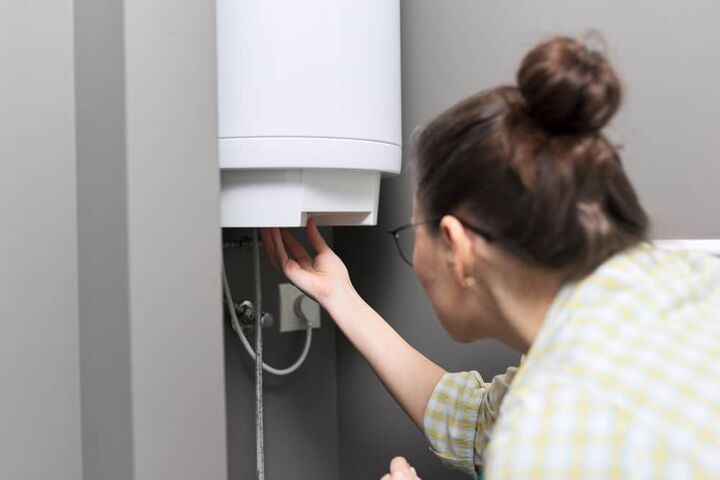






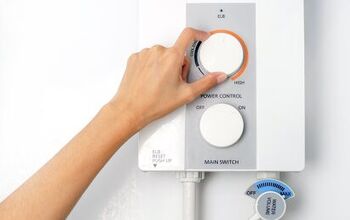
![10 Best Zero Turn Mowers – [2022 Reviews & Ultimate Buyer's Guide]](https://cdn-fastly.upgradedhome.com/media/2023/07/31/9070522/10-best-zero-turn-mowers-2022-reviews-ultimate-buyer-s-guide.jpg?size=350x220)

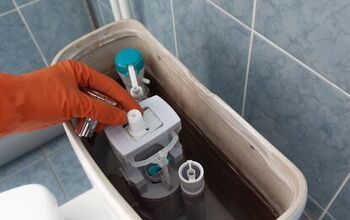

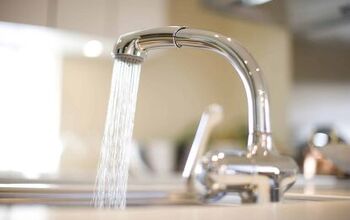




![Standard Dining Room Table Dimensions [for 4, 6, 8, 10 and 12 People]](https://cdn-fastly.upgradedhome.com/media/2023/07/31/9074335/standard-dining-room-table-dimensions-for-4-6-8-10-and-12-people.jpg?size=350x220)

